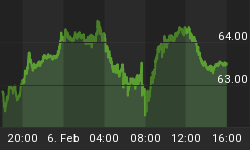There is uneasiness across a number of markets with moment-to-moment volatility grinding almost to a halt. It contributes to a feeling that this is the calm before a storm. It is not unusual for there to be a summer lull, or for one market to suffer disinterest relative to another, but the current situation across the whole range of capital markets should be a major concern.
The monetary background is also unprecedented, with all western central banks having depressed interest rates to close to zero for a prolonged period, accompanied by massive injections of raw money. This has led to enormous amounts of liquidity bottled up in capital markets. Central banks have also directed how this liquidity is invested: this is what the Fed's Operation Twist is about, raising long maturity bond prices relative to shorts. And the ECB's "Securities Markets Programmes" and "Outright Monetary Transactions", which have succeeded in driving risk premiums out of Eurozone government bonds.
Manipulating bond markets and driving perceptions of risk out of them is only the start of deliberate intervention. The belief in central banking circles is that rising stock markets foster the confidence that gets consumers spending again. Falling bond yields are seen as the motor that drives this process. And as interventions have become more widely understood and accepted, investors have complacently concluded markets are solidly underwritten.
Central banks also know that a rising gold price undermines confidence and so have taken action to keep it suppressed. We know this from the enormous flows of physical gold into Asia that can only have come from liquidation of monetary gold. So it's bull up the good stuff and dumb down the bad.
Market distortions from interventions have been accumulating since the Lehman crisis in 2008, moving ever further away from the path of market reality. Inevitably, private sector investors add to these distortions by anticipating they will continue. Banks and investment funds feel safe investing in Spanish and Italian government bonds at ridiculously low yields knowing that the ECB must underwrite them. Similarly, so confident are investors in US stocks that they are borrowing to buy and have driven up total margin debt on the NYSE to a near record level of $437bn in April. And at the same time these confident investors have taken short sales of gold and silver to new levels.
Cracks in these market distortions are now becoming visible. Regulators are circling around the banks: first it was Libor, now it is forex and gold. The Fed is backing down on QE and China is trying to slow the pace of credit creation, while Japan and the Eurozone are still fighting economic collapse. It amounts to a reality-check for over-extended investors committed to making money out of on-going market intervention. No wonder volatility has slowed to a crawl, and diverse markets are on the point of stalling.
History tells us that attempts to manage markets usually result in crisis, and that time now appears horribly close. If so, the consequence will be a radical reassessment of bond risk, leading to widespread losses in the banking system and the rapid reversal of extended investment positions in a range of markets. Volatility will disrupt complacency and return with a vengeance.















